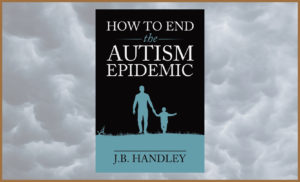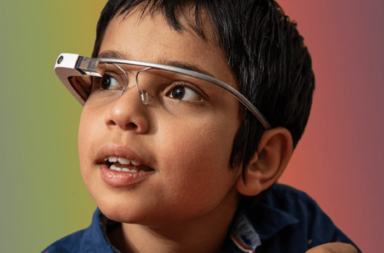When it comes to the monthly autism news round-up, I usually find that the news collected for one month will lean heavily into one category, be it medical advancements, awareness campaigns or autism portrayal in the media. August, however, was not your usual month.
Featuring headlines which sent ripples in every direction, here are the autism news headlines from August 2018 (as always, links to the full stories can be accessed by clicking on the red titles and the bold headings).
Honourable Mentions:

With so many newsworthy moments that have happened, it’s been difficult narrowing it down to only 5. So, for anyone who fancies doing a bit of extra reading, here are the headlines which didn’t make the cut (but definitely had the potential to):
- A new study shows that once again autism is not linked to vaccines
- Tests reveal that signs of anxiety in childhood may indicate autism
- Offensive ‘The Good Hospital’ sketch appears on TV (and is instantly condemned)
- Atypical Season 2 trailer is released
- National Autistic Society welcomes new ambassadors
- Charity comedy event featuring star-studded cast announced
- Autistic YouTuber Indie Andy appears in the Daily Mail to raise autism awareness
- Autistica reveal new board apprentices
- Demand for autism support dogs reaches critical levels
Top 5 Autism News for August 2018:
5. An Unlawful Ruling of Autism Exclusion from Education

Wrongful exclusion from school has become a core concern for the autistic community, as figures from the last 5 years have shown an increase of 33% year on year. Thankfully, as the result of a recent court case, there is now hope that these numbers might start to shift in our favour.
In the case which appealed to the exclusion of a child with autism and ADHD, who had acted violently in class, Judge Alison Rowley stated that:
‘it was “repugnant” to consider such behaviour as “criminal or antisocial” when it was a direct result of a child’s condition and “not a choice”.’ – someone buy this legend a drink!
Although I can’t say for certain what this will mean for the child going forward, it does provide hope that, in future cases of autistic exclusions, other factors will be taken into account before the life-changing decision is made.
4. Autism and learning difficulties will be a clinical priority for NHS

In response to July’s announcement that the NHS would be receiving additional funding, last month it was revealed that of the causes that this money will be invested in, autism and learning difficulties will be a clinical priority.
What this specifically means is still yet to be discovered, however, many believe that it may be used to offer better post-diagnosis support for autistic people. This is due to the government having stated in August that they want to look into “reducing the gap in life expectancy for autistic people”.
Although this kind of support is certainly something which would be welcomed by myself and many other autists, I personally would like to see a share of the funding go towards improving diagnosis waiting times and create a system where the time it takes to receive an autism examination isn’t based on your geographical background. However, regardless of where the money goes, it’s just great to see that the needs of our community finally receiving the attention they deserve.
3. Autistic People vs Disneyland
After a successful appeal (of a previously dismissed case) against Disneyland’s regime change in 2013 – a change which made it next to impossible for autistic people who severely struggle with an unpredictable routine to go to the magic kingdom – this month it was announced that 30 more lawsuits against the entertainment conglomerate with a similar claim would go to trial.
Whilst lawsuits have never really been a keen interest for me, one of the most fascinating parts of the trial for me is the catalyst for why the changes were first put in place. According to Disney, these changes were regarded as necessary, because during the old system where autistic people were receiving free queue jumps passes, it was discovered that certain groups were hiring autistic people to join their party for the day so that they would also receive this queue-jumping benefit and avoid the parks’ long waiting times.
As such, instead of locating the source of the problem e.g. the people were using autistic people, Disney chose to damage autistic people’s experience of Disneyland. This was done by bringing in a new virtual queue system which does not support those who are distressed by unpredictable wait times, and furthermore only creates multiple waiting experiences for Autistic people.
Although at this time Disney has not said whether these lawsuits would affect their support plans for autistic visitors, given that the judgment has been given that ‘Disney Parks have an unwavering commitment to providing an inclusive and accessible environment for guests,’ it seems likely that an announced change will follow imminently.
2. First Autism-Friendly Performance of Harry Potter and the Cursed Child

(Photo Credit: Manuel Harlan)
With the support and organisation of the National Autistic Society, this month the Palace Theatre, London hosted an autism-friendly showing of the award-winning Harry Potter and the Cursed Child – a show which tells the story of what became of its titular character after the flash-forward at the end of the original book series.
As someone who was lucky enough to get tickets to this incredible event, it was inspiring to see the hard work which had gone into making this show so accessible for autistic attendees, with inclusions such as a ‘chill out area’, an introduction from the cast beforehand and members of the National Autistic Society standing by to offer support throughout the event.
Although the scripting and execution of the show was nothing short of outstanding, one of the highlights of the performance was getting to meet other members of the community and experience the various personalities from the spectrum, all united by a single love for the wizarding world.
With this in mind (and after being part of such a huge turnout), I can’t help but feel optimistic that it isn’t the last time we’ll see an autism-friendly performance of Harry Potter and the Cursed Child and subsequently the improved accessibility of all plays.
Dishonourable Mention
#EndAutismNow

For those of you who have involved in autism discussions on social media this month, you may well have already seen the EndAutismNow hashtag. It’s a movement which I have seen plenty of conversation around and has caused such an uproar that even renowned autism researcher, Simon Baron Coen, has become involved.
Although it’s fair to react to this statement with anger or disdain (as words which seem to promote the eradication of autism have been filling up timelines everywhere), I can’t help but feel fascinated that things have grown so prominently around this hashtag, as only with a little research it reveals that this ‘movement’ is nothing more than a marketing stunt for a new book called ‘How to End the Autism Epidemic’.
Whilst you might expect a book called ‘How to End the Autism Epidemic’, to be a scientific breakdown of what is causing autism and how it can be controlled, the book’s contents actually surround the strange conspiracy theory: that autism is secretly caused by vaccine companies who pay the government millions so that they can keep on making money themselves. In other words, it’s a book discussing absolute tosh.
I understand that a book titled this way, with a hashtag that reads like an attack, was no doubt always going to become controversial. However, the people who believe this type of nonsense cannot be reasoned with. So, whilst I do condemn everything about this soon to be launched book and undoubtedly believe that it has earned its place in today’s dishonourable mentions, I encourage everyone to just stay away from getting directly involved in any present of future conversations surrounding the book, as not only will your points fall upon deaf ears, but, as has been shown this month that online discussions of the book have a tendency to turn nasty quick.
1. ‘Holy Grail’ Discovery may ease Anxiety in Autistic People

Okay so you caught me, this month’s top piece of news didn’t actually happen last month. However, given that all the discussion of the news took place in early August I’m going to allow it this one time.
SO, In *cough* July *cough*, researchers for the Journal of Neurology found that it may be possible to treat many of the complications caused by autism, such as anxiety and memory problems, through the use of a single ‘miracle’ treatment.
Unlike the previously mentioned EndAutismNow campaign, this finding doesn’t aim to remove autism altogether. However, if the research continues to provide positive results, the new ‘cure’ could help remove some of those nasty side-effects that have been previously mentioned, whilst leaving us with the autistics traits which have shaped many our great personalities.
Whilst the treatment has only be tested on mice so far, it has proven effective in both adult and infant mice meaning that, if the treatment and effects last over the coming months (without having any complications themselves) then this discovery could be a blessing for the autistic community or, as Alea Mills, Professor at Cold Spring Harbor Laboratory in New York puts it: ‘the holy grail for being able to fix some of the negative effects of autism’.
Carry on the Conversation
What was your number 1 piece of autism news for August 2018? Let me know in the comments below.
As always, I can also be found on Twitter @AutismRevised and via my email: AutisticandUnapologetic@gmail.com.
If you like what you have seen on the site today, then show your support by liking the Autistic & Unapologetic Facebook page. Also, don’t forget to sign up to the Autistic & Unapologetic newsletter (found on the sidebar on laptops and underneath if you are reading this via mobile) where I share weekly updates as well as a fascinating fact I have found throughout the week.
Thank you for reading and I will see you next Saturday for more thoughts from across the spectrum.
(Photo credit for featured image: Harry Potter the Play)


